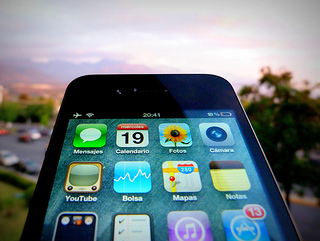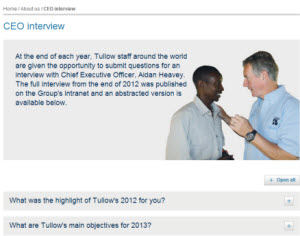 In a study of mobile consumers, Ipsos OTX and Ipsos Global @dvisor found that 52% of the global mobile audience and 42% of the U.S. mobile audience are more likely to buy brand products after using the brand’s mobile app. However, in all areas of the world except Japan, China, and South Korea, mobile consumers would prefer to follow brands on social media than use brands’ mobile apps. Globally, 55% of mobile consumers would prefer to use social media to follow brands versus 45% of mobile consumers who would prefer to use brand mobile apps.
In a study of mobile consumers, Ipsos OTX and Ipsos Global @dvisor found that 52% of the global mobile audience and 42% of the U.S. mobile audience are more likely to buy brand products after using the brand’s mobile app. However, in all areas of the world except Japan, China, and South Korea, mobile consumers would prefer to follow brands on social media than use brands’ mobile apps. Globally, 55% of mobile consumers would prefer to use social media to follow brands versus 45% of mobile consumers who would prefer to use brand mobile apps.
For companies that do invest in brand mobile apps, consumers are looking primarily for three things: information, discounts, and convenience. The full breakdown of the reasons respondents to the Ipsos study gave for using brand mobile apps via eMarketer follows:
- Keep informed about the brand, store, or company = 43%
- Get discounts and coupons = 41%
- Easier and quicker than going to their website or social media page = 38%
- They have tools that help me = 35%
- They have fun, interesting, and cool content = 27%
- Participate in their contests = 20%
- Offer opinions and suggestions = 18%
- They make me feel connected to the brand, product, store or company = 17%
- None of these = 9%
One year ago, I published an article on Corporate Eye that included a long list of statistics about what’s next for branded apps in an infographic from Neolane. Based on the data in that infographic, 70% of iPhone users will have downloaded a brand mobile app. The data also showed that the most successful brand mobile apps provide users with information and and personalization, but most importantly, the best mobile apps provide users with a connection to a brand they trust.
Within just a few short years, the importance of mobile marketing has grown from an experimental channel to a critical channel for marketing and sales. With mobile app overload cluttering most smartphone device owners, brands no longer have to decide whether or not they should have a mobile app but how best to meet consumers’ needs with their mobile app.
Today, brands are finding that creating mobile apps might not be the best way to connect with mobile consumers. One thing is for certain, for a brand mobile app to have a chance at success, it needs to offer useful information and discounts in a faster way than consumers can get that information and those discounts anywhere else. Does yours?
Image: Gonzalo Baeza

 What do media, publishing, and marketing executives think about the world of online advertising in 2013? What are the biggest opportunities and challenges?
What do media, publishing, and marketing executives think about the world of online advertising in 2013? What are the biggest opportunities and challenges?